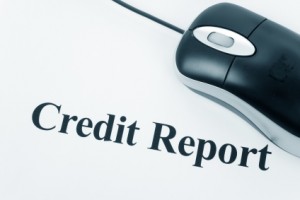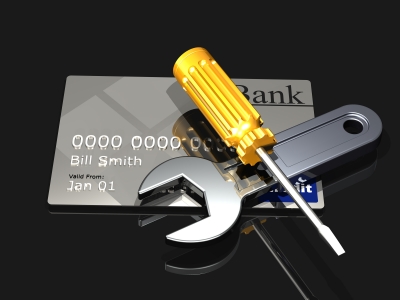Archive for 2009
Monday, October 26th, 2009
 We hear a lot about the right to privacy lately, but really have none. Our credit report is on file, ready to be accessed by anyone with a legal right, and some with no legal right. We hear a lot about the right to privacy lately, but really have none. Our credit report is on file, ready to be accessed by anyone with a legal right, and some with no legal right.
Under §604 of the Fair Credit Reporting Act, your credit report can be accessed for:
• Applications for credit, insurance, and rentals – with your signature on the application.
• Employment, including promotion, retention, or reassignment – again with your signature of consent
• Court orders, including grand jury subpoenas.
• Professional licensing
• Child support payment determinations
• Law enforcement access – Government agencies who investigate terrorism and counterintelligence have access to all credit reports
• Account review – Banks and credit agencies may review your credit files to decide if they want to curtail your credit or send you offers of more credit
The good news is that in most cases your signature of agreement is required, and you do have a right to opt-out of some of these uses. For instance, you can opt-out of “prescreening.”
This is the practice of selling lists of customers based on information in their credit files for the purpose of sending unsolicited offers. In some cases, this practice has been the source of identity theft. You can opt-out of this practice by calling 1-888-5OPTOUT. This will stop the practice for 5 years, at which time you’ll again be subject to pre-screening. To opt-out permanently, you’ll need to fill out and submit a form, which you can request.
You can also opt-out of “affiliate information sharing.” This allows subsidiaries of bank holding companies to share credit reports and transactional information with their affiliates – even those who have no legal right to the information.
To opt-out of this practice, you must send a letter to each of your banking institutions – including credit card issuers.
Use your full name and address as shown on your statement from that bank, and then write something such as: “I am writing to opt-out of allowing the bank to share information about me and my account(s) either with its affiliates or any direct marketing companies. This is my right under the Fair Credit Reporting Act. Please send me verification that you have removed my name and account from any and all affiliate information sharing or direct marketing uses of my information.”
Be aware of the legal uses of your credit report. Should you be threatened by a debt collector who has gained access to your report under false pretenses, you can file suit.
Author:Marte Cliff
CreditScoreQuick.com your resource for free credit reports, credit cards, loans, and ground breaking credit news.
Posted in Uncategorized | 1 Comment »
Saturday, October 24th, 2009
Whether you need to raise your credit score just enough to qualify for a loan, or whether you’re trying to reach that “magic 740″ to get the best rates and terms offered, there are some small things you can do to boost your scores.
The first step, of course, is to know where you stand today. So first, get your free credit report and read it carefully.
Step one is to dispute any errors that might be dragging you down. These would include any negative items that just aren’t yours – and yes, that happens. Experts say that 70% of all credit reports contain errors.
Next check to see that reported credit limits are accurate and that all accounts you’ve paid on time are listed correctly. Then, if you’ve had a bankruptcy, check to see that all included accounts have been removed from your report.
While you’re getting that out of the way and making sure that your credit report is accurate, you can begin steps to raise your score.
Step one: Apply all extra funds to your credit card accounts rather than your mortgage, car loan, or student loans. For whatever reason, paying down credit cards has a more dramatic impact on your scores than paying down other obligations.
Next, cut back on credit card use. Limit your outstanding balance to 30% or less of your credit limit, and work to see that the balance reported to the credit bureau each month is not the same as the month before.
Credit card companies report your balance as of the current statement. They do NOT report that you paid in full last month and thus the new balance is all new charges.
The trick you can use here is to keep track of when your statement is issued each month. Then go on line a few days prior to the statement being issued and make your payment. Now you’ve widened the gap between what you owe and your credit limit.
Credit scoring models love old credit cards, but only if you actually use them. So if you have an old card, take it out and use it every month or so. You don’t have to carry a balance, just show activity, so that the credit card issuer will resume reporting it to the credit bureaus.
The second benefit of occasionally using your old card during today’s confusion is that you lessen your chances of the card issuer canceling the card. They don’t like to keep inactive cards on the books, so if you don’t use it, you could lose it. And of course, the closed account reduces your available credit and thus lowers your credit score.
Author: Mike Clover
CreditScoreQuick.com your resource for free credit reports, credit cards, loans, and ground breaking credit news.
Posted in Uncategorized | Comments Off
Tuesday, October 13th, 2009
 Many people do, and it’s usually because they don’t know where the “money leaks” are. Many people do, and it’s usually because they don’t know where the “money leaks” are.
Thus, the first thing you should do is see where your money is going each week, each month, each year. Keep a careful record of expenditures, both by check and credit card, and by cash.
If you put a notebook in your pocket or a piece of paper in your wallet and actually record every expenditure, you may be surprised at what you learn!
If you find money leaks – and you probably will – there’s one way to plug them. With the exception of fixed expenses like the mortgage payment, the power and phone bills, and your credit card payments that have to be made by check, begin using cash.
One day not long ago I was at the check-out counter at the grocery store, visiting with the cashier as usual. I said something about buying more than I had written on my list. About that time the woman behind me, who had about 3 items in her hands, spoke up.
She said “That won’t happen if you always pay with cash. You can only buy as much as you brought money for.”
She was right! If you plan your purchases and take along enough cash to cover them, you won’t be tempted to make those impulse purchases that eat holes in the budget.
Along with day to day expenses and your monthly bills, you need to allow for savings, and for annual and semi-annual bills. If you overlook the fact that your car insurance is due in July and don’t set aside the funds, it can be cause to go further into credit card debt when you write one of those handy “cash advance” checks to meet the payment.
Also, you need to budget in a little fun and enjoyment.
Unless there is absolutely NO money left at the end of the bills and the groceries, you need to allow yourself some small rewards in life. Just cut back on them a bit.
If you love eating out or going to movies, put it in the budget, but do it less frequently. If you love new clothes, set aside an amount that you can spend each month, and then shop until you find something perfect with that sum, rather than buying something that merely catches your eye.
The trick with budgeting is to create a plan that you can actually live with. If you’re too restrictive, it won’t last past the first two weeks.
Author: Mike Clover
CreditScoreQuick.com your resource for free credit reports, credit cards, loans, and ground breaking credit news.
Posted in Uncategorized | Comments Off
Monday, October 12th, 2009
Q:
I am considering some type of debt program to help eliminate credit card debt. I’ve had discussions with a company that does debt settlement and another company that does debt management. What are the pros/cons, short term and long term impacts of each program – specifically credit score impacts. I need an unbiased answer. I have a significant amount of debt but I am current on my payments. The reason for doing a program is to be able to pay off my debt in this lifetime. Any advice?
Alicia
A:
Hi Alicia,
We just posted a article on the web about this particular subject. You can reference it here. In our professional opinion you are better off calling the creditors yourself and working out arrangement’s. If you find you can never get caught up, you might consider Chapter 13, there really is no difference in the eyes of lenders. When it comes to credit, that is all you are really worried about anyways. Your credit scores will be affected either way, unless you can work something out with your credit card companies. Make sure if you work some type of arrangement out with them, that they dont report any late payments on your behalf. Also get everything in writing.
* note: Debt Settlement or Debt Management will report on your credit report as Debt Consolidation typically. You are better off filing Chapter 13 , and paying a attorney there fee, instead of paying a bunch of unnecessary money to a debt management company.
Hope this helps.
CreditScoreQuick.com
Posted in Uncategorized | 2 Comments »
Monday, October 12th, 2009
 You’ve seen the ads… they tell you to “Call today and we’ll make your credit card debt go away!” It’s just another part of the overall government-entitlement climate of bail-outs, homebuyer credits, cash for clunkers, loan modifications and short-sales. The ads make it sound like you have a right to walk away from all your debts. You’ve seen the ads… they tell you to “Call today and we’ll make your credit card debt go away!” It’s just another part of the overall government-entitlement climate of bail-outs, homebuyer credits, cash for clunkers, loan modifications and short-sales. The ads make it sound like you have a right to walk away from all your debts.
The trouble is, unless you are seriously in default on your credit cards, it isn’t likely to happen. Those companies will take your money, but they probably won’t deliver.
Credit card debt settlement is offered by some lenders after your account is so far in default that their next step is to either sell it for pennies on the dollar to a collection agency or pay an attorney to sue you.
In other words, they aren’t going to do that unless it appears to be the most financially advantageous route for them. And even then, some credit card companies won’t do it.
So…you can simply stop paying and wait for them to make you a settlement offer. But be prepared for what will happen next.
As soon as your payment is a day late, the interest rate will soar. It could go as high as 29.9%. Next, your credit limit will be reduced to at or below your current balance. That means that when the late penalty and interest are added on, you’ll be over limit. There’s a fee for that, you know.
Next, your phone will begin to ring at all hours of the day. You’ll also get nasty letters.
As you might expect, those late payment notations on your credit report will send your credit scores tumbling. That can cause your insurance rates to rise, could prevent you from getting a promotion or a new job, and keep you from buying anything on credit for several years.
Finally, unless you do have the cash to reach a settlement, you could face legal action. If the card issuer brings suit against you there will probably be a judgment in their favor – at which time they can garnish your wages and attach your assets.
Only you know if it’s worth it.
If you do decide to seek a settlement, stay away from those companies advertising on TV and the Internet. Instead, seek out a competent attorney to advise you and negotiate on your behalf.
Author: Mike Clover
CreditScoreQuick.com your resource for free credit reports, credit cards, loans, and ground breaking credit news.
Posted in Uncategorized | 2 Comments »
Sunday, October 11th, 2009
 In a letter dated September 18, Assistant Secretary for Housing- Federal Housing Commissioner, David H. Stevens, outlined changes in the FHA Streamline Refinance Program to take effect November 17, 2009. In a letter dated September 18, Assistant Secretary for Housing- Federal Housing Commissioner, David H. Stevens, outlined changes in the FHA Streamline Refinance Program to take effect November 17, 2009.
This program, which is available only to homeowners with existing FHA home loans, was designed to help those homeowners reduce their mortgage payments, and thus stay in their homes.
Right now, the program only requires that the homeowners meet a minimum credit score and that the new loan does not exceed the original balance of the old loan. Homeowners are not required to show proof of income, employment, or assets, and no appraisal is required.
This is about to change.
For starters, the loan to be refinanced must be seasoned for at least 6 months, and the homeowner must be in good standing. Contrary to rumors that the only people who get help with mortgages are those in default, default will put you out of the running for a FHA Streamline Refinance.
For mortgages with less than a 12 months payment history, the borrower must have made all mortgage payments within the month due.
If the mortgage is one year old or older, the borrower must have made each payment within the month due for the previous 3 months, and must not have had more than one 30-day late payment in the past year.
Next, the borrower must now show proof of employment and income. If cash will be needed at closing, the lender must verify that those assets are available prior to submitting a loan for endorsement.
As might be expected, the new loan must be beneficial to the borrower. It must be a change in loan program, result in a 5% or more reduction in the mortgage payment, or result in a shorter loan term.
One significant change involves appraisals. If the borrower wishes to include closing costs and pre-paid escrow items, an appraisal will be required.
The loan will then be limited to either: the outstanding principal balance, plus closing costs, escrow amounts, and mortgage insurance, or 97.75% of the appraised value, plus such costs. Points may not be financed.
Since many homes are now appraising for less than their mortgage balances, this requirement could prevent use of the program for all homeowners without the cash to cover closing costs and pre-paid taxes and insurance.
The mortgage insurance premium can still be included in the mortgage, with or without the appraisal.
Author: Mike Clover
CreditScoreQuick.com your resource for free credit reports, credit cards, loans, and ground breaking credit news.
Posted in Uncategorized | 4 Comments »
Wednesday, October 7th, 2009
 Usury has been the subject of both debate and scorn for centuries. When Shakespeare wrote “The Merchant of Venice” in the 16th century, the character Shylock had to forsake usury in order to gain admittance to heaven. Usury has been the subject of both debate and scorn for centuries. When Shakespeare wrote “The Merchant of Venice” in the 16th century, the character Shylock had to forsake usury in order to gain admittance to heaven.
It is no wonder that most states enacted usury laws to protect their citizens. Now, however, the protection is largely gone.
Usury laws still exist in most states, although they can be confusing. While generally fixed, they can in some cases be tied to variable factors such as the U.S. Treasuries Security Rate. Then the allowable rate can vary according to the dollar figure and the type of contract.
The fixed portion can vary greatly. In Arkansas, for instance, the cap on interest rates for consumers is 17%, while in Idaho it’s 12% and in Alabama it’s 6%.
How then, can credit card companies charge as much as 29.9%?
Because usury laws don’t apply to banks, savings and loan institutions, or credit unions – thus they don’t apply to credit cards.
In 1978 the Supreme Court ruled that national banks could charge the highest interest rate allowed in that bank’s home state. Since states such as Delaware and South Dakota have nonexistent usury laws, all these banks needed to do was claim one of those states as “home.” It no longer mattered in which state the borrower resided.
Then, in 1980 the Depository Institutions Deregulation and Monetary Control act gave state-chartered banks the same rights. Under this law, all federally insured banks, including state chartered banks, may charge out of state consumers the highest rate permissible in the state, district, or territory that the bank calls home.
Then, in 1999, when President Clinton signed the Gramm-Leach-Biley Act into law, the final restrictions in Arkansas fell. This law allowed Arkansas banks to charge the greater of their own state’s usury limit, or the highest rate charged by an out-of-state bank with a branch in that state.
Other states, acting under the terms of the DIDMC act, soon followed. State legislatures across the country passed “wild-card parity statutes” that allowed their own state banks the same privilege.
Thus, while usury laws are on the books, they don’t mean much. Usury law limits simply don’t apply to banks any more.
If you’re looking for a cap on interest rates, look toward a credit union. The National Credit Union Administration currently sets the usury limit for federally chartered credit unions at 18% – without regard to the state in which the credit union is located.
State usury laws still do apply to commercial transactions by non-banking entities
Author: Mike Clover
CreditScoreQuick.com your resource for free credit reports, credit cards, loans, and ground breaking credit news.
Posted in Uncategorized | Comments Off
Wednesday, October 7th, 2009
 It just might. It just might.
HR 3706, introduced by Representative Scott Garrett, calls for major changes in Federal Housing Administration (FHA) loan programs.
While the “no money down” loans of just a few years ago are a distant memory, FHA loans offer borrowers the opportunity to purchase a home with just 3.5% down, and more relaxed credit guidelines than conventional loans.
Borrowers can purchase a house with a FICO score of 620, as long as they have a good credit history for the past 12 to 24 months, and 3 lines of credit in good standing for the previous year.
For that reason, about 30% of loans being written today are backed by FHA.
Under HR 3706, the down payment requirement could increase to 5%. In addition, the ability to roll closing costs into the mortgage loan will be removed. These costs, unless paid by the seller, will add another 2% to 3% to the funds needed to close.
On a $150,000 home, the current regulations would require the borrower to come to the table with $5,250. If passed, the new regulations could require that same borrower to come in with at least $7,500 and up to $12,000 if the seller refuses to pay closing costs.
While requiring a buyer to contribute more out of pocket does reduce the risk to the lender, this change will push many first time buyers out of the housing market until they save for the down payment. Given the state of the economy, that could take many months, if not years.
Had these kinds of regulations been in place a few years ago, we probably would not be facing the current mortgage crisis. Banks would not have failed due to foreclosures, and record numbers of consumers would not be facing the loss of their homes. Thus, the changes will be beneficial in the long run, but in the short term will be detrimental to home sellers and those who depend upon the real estate industry for an income.
This should serve as a wake-up call to everyone. After being spoiled over the last 10 years with 100% financing, we now need to focus our attention on saving money if we wish to purchase our dream homes.
That said, I believe that if and when this bill goes into effect, we will see yet another slow down in home sales.
If you don’t know your credit score get your free credit report today !
Author: Mike Clover
CreditScoreQuick.com your resource for free credit reports, credit cards, loans, and ground breaking credit news.
Posted in Uncategorized | 2 Comments »
Monday, October 5th, 2009
 Repairing your credit report can be a daunting task. I am going to give you the FACTS and resources about repairing your own credit report for FREE. Repairing your credit report can be a daunting task. I am going to give you the FACTS and resources about repairing your own credit report for FREE.
Over the years I have learned what really works to get your scores up quickly. Since I am a lender, there were many instances where I had to get a borrowers credit scores higher in order to secure financing for them. Here are the steps:
Pull your credit report – Obviously you need to know what is on your credit report so you can assess the damage. Don’t be scared, just pull it. Get your free credit report.
Look for inaccuracies on your report – You can dispute information that is not correct. You can do this through our credit dispute button. You dispute directly online with each credit bureau. Once this is found to be inaccurate, the credit bureau will update this inaccurate information hurting your credit score.
Look for collections on your report – I am sure you have heard that all you need to do is dispute a collection. Well this is not completely true, you can dispute that collection and it might temporarily be removed. You really want permanent results not temporary results. The best solution is to find the collections on your credit report and calculate how much you owe for each debt. Make a check list of these collections and balances owed. Also get the numbers to call these collection companies which is on the credit report.
Determine your budget to negotiate these collections – This is the best practice. Pay off the collections by negotiating pennies on the dollar. You will be surprised what these collection companies will settle for. Typically you can settle between 60 and 70% of balanced owed. Make sure you meet the agreement you arranged with the collection company.
Get all documentation in writing – After you have paid off the collection, make sure you get a letter from the collection company stating that you settled or paid in full on the debt owed. You will need this letter if you later find that the bureaus have not updated properly.
Re-Establish credit – In order to have good credit scores you will need at least 2 to 3 lines of good credit reporting in your name. Typically if all your good credit has gone to collection, the quickest way to re-establish is to get a couple of secured credit cards. If you don’t have any credit scores, this credit scoring process will take a minimum of 6 months to get scores. It is important to make sure you re-establish credit if you don’t have any credit….
Re-pull your credit report after 60 days – Once you have settled on your collections and reestablished new credit if needed, re-pull your credit report 60 days afterwords. This time frame will allow the creditors to update the credit bureaus properly. If you find some of the collections agencies have not updated the credit bureaus, call them and let them know.
When using a credit repair company you might ask them if they use credit repair business software like creditscoretechs.com. This is a robust way of automating the credit repair process. Check them out.
This is the simple way of repairing your credit report without paying some credit repair company high fees. If you have any questions e-mail us at creditguru@creditscorequick.com
CreditScorequick.com
Posted in Uncategorized | 6 Comments »
Sunday, September 27th, 2009
 When computer hacker Albert Gonzales pled guilty to charges of conspiracy, access device fraud, wire fraud, and aggravated identity theft, he admitted to accessing information on servers owned by retail chains across the country. When computer hacker Albert Gonzales pled guilty to charges of conspiracy, access device fraud, wire fraud, and aggravated identity theft, he admitted to accessing information on servers owned by retail chains across the country.
As part of a ring of computer data thieves, he helped find weak spots in wireless computer systems, and subsequently installed hidden computer software that enabled him and his cohorts to steal the data from magnetic strips on the backs of credit cards. This information was then sold to other criminals.
Gonzales was involved in yet another crime – because the funds he and his co-criminals were paid was laundered through international accounts.
At this point, no one really knows how many accounts were accessed or the financial magnitude of the theft. Some believe that the assets seized will not cover the losses.
Interestingly, part of Gonzales’s crime is that of acting in the role of a “double agent.” When he was arrested in 2003 he got special treatment by promising to cooperate with and assist authorities as they closed in on his associates. Instead, he used the information given him by the Secret Service to warn those associates that they were in danger of apprehension.
He is now plea-bargaining for a reduced sentence in exchange for information about his crimes.
Experts advise consumers to avoid using credit cards with retailers who don’t have a strong security system. But how is the average consumer to know if their favorite retailer has a hacker-proof system? And, is there even such a thing as a hacker-proof system?
The crooks who seek to steal information are every bit as intelligent and experienced as the technicians who seek to stop them. In addition, it is entirely possible that the very crooks they seek to thwart are on the teams of computer experts hired to prevent access. After all, they are among the brightest technicians in the world.
What can consumers do to protect themselves?
Locking the report will prevent new accounts from being opened under their names, and that’s a good start. Discontinuing all use of credit cards will prevent theft such as Gonzales committed, but will not prevent access to information that is already stored in government and business data bases. All of us have information that is out there and accessible under the right circumstances.
The only real security for consumers is to keep a constant watch on their credit reports, so that any unauthorized activity can be halted immediately. The smartest move is to enroll in credit monitoring, which will immediately alert the consumer to any changes that might signal identity theft.
Author: Mike Clover
CreditScoreQuick.com your resource for free credit reports, credit cards, loans, and ground breaking credit news.
Posted in Uncategorized | Comments Off
Disclaimer: This information has been compiled and provided by CreditScoreQuick.com as an informational service to the public. While our goal is to provide information that will help consumers to manage their credit and debt, this information should not be considered legal advice. Such advice must be specific to the various circumstances of each person's situation, and the general information provided on these pages should not be used as a substitute for the advice of competent legal counsel.

|
 We hear a lot about the right to privacy lately, but really have none. Our credit report is on file, ready to be accessed by anyone with a legal right, and some with no legal right.
We hear a lot about the right to privacy lately, but really have none. Our credit report is on file, ready to be accessed by anyone with a legal right, and some with no legal right.


 Many people do, and it’s usually because they don’t know where the “money leaks” are.
Many people do, and it’s usually because they don’t know where the “money leaks” are. You’ve seen the ads… they tell you to “Call today and we’ll make your credit card debt go away!” It’s just another part of the overall government-entitlement climate of bail-outs, homebuyer credits, cash for clunkers, loan modifications and short-sales. The ads make it sound like you have a right to walk away from all your debts.
You’ve seen the ads… they tell you to “Call today and we’ll make your credit card debt go away!” It’s just another part of the overall government-entitlement climate of bail-outs, homebuyer credits, cash for clunkers, loan modifications and short-sales. The ads make it sound like you have a right to walk away from all your debts. In a letter dated September 18, Assistant Secretary for Housing- Federal Housing Commissioner, David H. Stevens, outlined changes in the FHA Streamline Refinance Program to take effect November 17, 2009.
In a letter dated September 18, Assistant Secretary for Housing- Federal Housing Commissioner, David H. Stevens, outlined changes in the FHA Streamline Refinance Program to take effect November 17, 2009. Usury has been the subject of both debate and scorn for centuries. When Shakespeare wrote “The Merchant of Venice” in the 16th century, the character Shylock had to forsake usury in order to gain admittance to heaven.
Usury has been the subject of both debate and scorn for centuries. When Shakespeare wrote “The Merchant of Venice” in the 16th century, the character Shylock had to forsake usury in order to gain admittance to heaven. It just might.
It just might. Repairing your
Repairing your  When computer hacker Albert Gonzales pled guilty to charges of conspiracy, access device fraud, wire fraud, and aggravated
When computer hacker Albert Gonzales pled guilty to charges of conspiracy, access device fraud, wire fraud, and aggravated